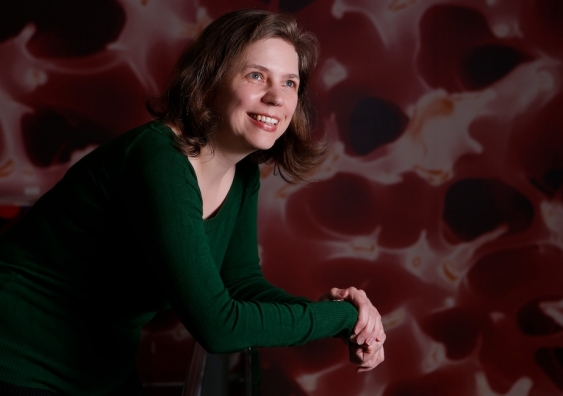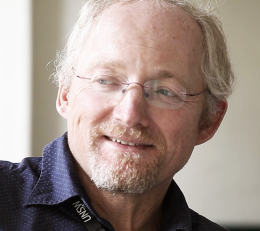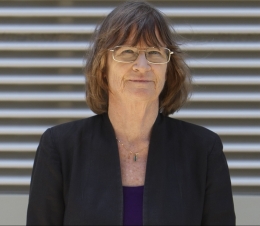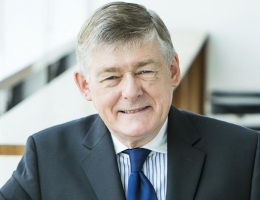A computer scientist calling for a global ban on ÔÇśkiller robotsÔÇÖ, an╠řinternationally╠řrespected drug researcher, and a chemist making breakthroughs in nanomedicine to combat cancer, are among 16 new ╗╩╣┌▓╩Ă▒ Scientia Professors.
Nominated by their peers and selected based on an impressive portfolio of international research success, Scientia Professors embody ╗╩╣┌▓╩Ă▒ÔÇÖs highest values, including leadership, innovation, creativity, teamwork and, above all, excellence.
ÔÇťThe standard required for this promotion is extraordinarily high,ÔÇŁ said Professor Ian Jacobs, President and Vice-Chancellor of ╗╩╣┌▓╩Ă▒. ╠řÔÇťThis is an exceptional achievement and I congratulate all the new Scientia Professors on their appointments.
ÔÇťThis is a fitting recognition of their stellar contributions to our University community and the broader academic world. Their leadership and continued excellence will be critical as we push ahead with delivering our ambitious ╗╩╣┌▓╩Ă▒ 2025 Strategy.ÔÇŁ╠ř
Sixteen professors from across the university have received the prestigious academic honour. Among them is Professor Toby Walsh, an artificial intelligence (AI) expert from the School of Computer Science and Engineering and CSIROÔÇÖs Data 61 unit.
Walsh, who addressed the United Nations in Geneva this week, sparked an ethical debate last year when he wrote an open letter calling for lethal autonomous weapons to be banned. It gained signatures from some 3000 leading AI researchers and intellectuals, including physicist Stephen Hawking and Tesla founder Elon Musk. Walsh was one of the keynote speakers at ╗╩╣┌▓╩Ă▒ÔÇÖs Grand Challenges event .
Professor Martina Stenzel from the School of Chemistry is another recipient. A former ARC Future Fellow, she is widely regarded as a leading expert globally in the synthesis of novel polymer architectures. By developing ÔÇśsmartÔÇÖ nanoparticles that can selectively latch onto a cancer cellÔÇÖs receptors before delivering powerful drugs, Stenzel is revolutionising the way we target and treat disease. She was featured in the Research@╗╩╣┌▓╩Ă▒╠ř.
Louisa Degenhardt, one of the leading voices in the National Drug and Alcohol Research Centre, has also been named a Scientia Professor. Another╠ř, Degenhardt is trying to untangle the complexities of illicit drug-related harm to help make sure policy makers, clinicians and the broader community have the right information to save lives. She has advised the World Health OrganisationÔÇÖs Global Burden of Diseases study and the UN Office on Drugs and Crime.╠ř
Other Scientia Professor appointees include Professor Lyn Craig, Director of the Social Policy Research Centre in the Faculty of Arts & Social Sciences, and Professor of Marketing John Roberts from the ╗╩╣┌▓╩Ă▒ Business School. Craig investigates topics related to gender equity and work-family balance, while Roberts has extensive experience in the private sector and has served as a visiting professor at both Stanford University and the Massachusetts Institute of Technology.
Here is the full list of the new Scientia Professors, whose appointments will begin on 1 January 2017 and continue until 31 December 2022.
- Professor Bernard Balleine, School of Psychology
- Professor Michael Barton, South Western Clinical School
- Professor Lyn Craig, Social Policy Research Centre
- Professor Louisa Degenhardt, National Drug and Alcohol Research Centre
- Professor Louise Edwards, School of Humanities and Languages
- Professor Jacob Goeree, School of Economics
- Professor Gary Housley, School of Medical Sciences
- Professor Stephen Lord, Neuroscience Research Australia
- Professor Andrew Martin, School of Education
- Professor Rosemary Rayfuse, School of Law
- Professor John Roberts, School of Marketing
- Professor Derrick Silove, School of Psychiatry
- Professor Martina Stenzel, School of Chemistry
- Professor Brian Uy, School of Civil and Environmental Engineering
- Professor Toby Walsh, School of Computer Science and Engineering
- Professor Jingling Xue, School of Computer Science and Engineering
For more information on the ╗╩╣┌▓╩Ă▒ Scientia Professor program visit:
╠ř╠ř╠ř





